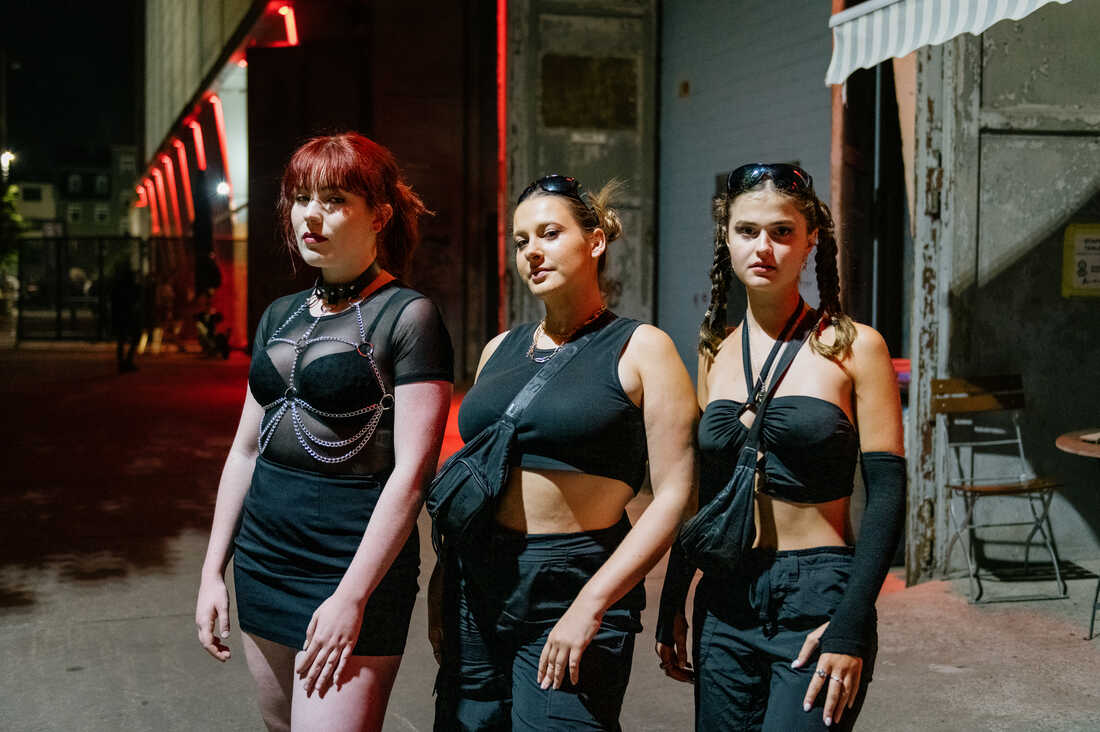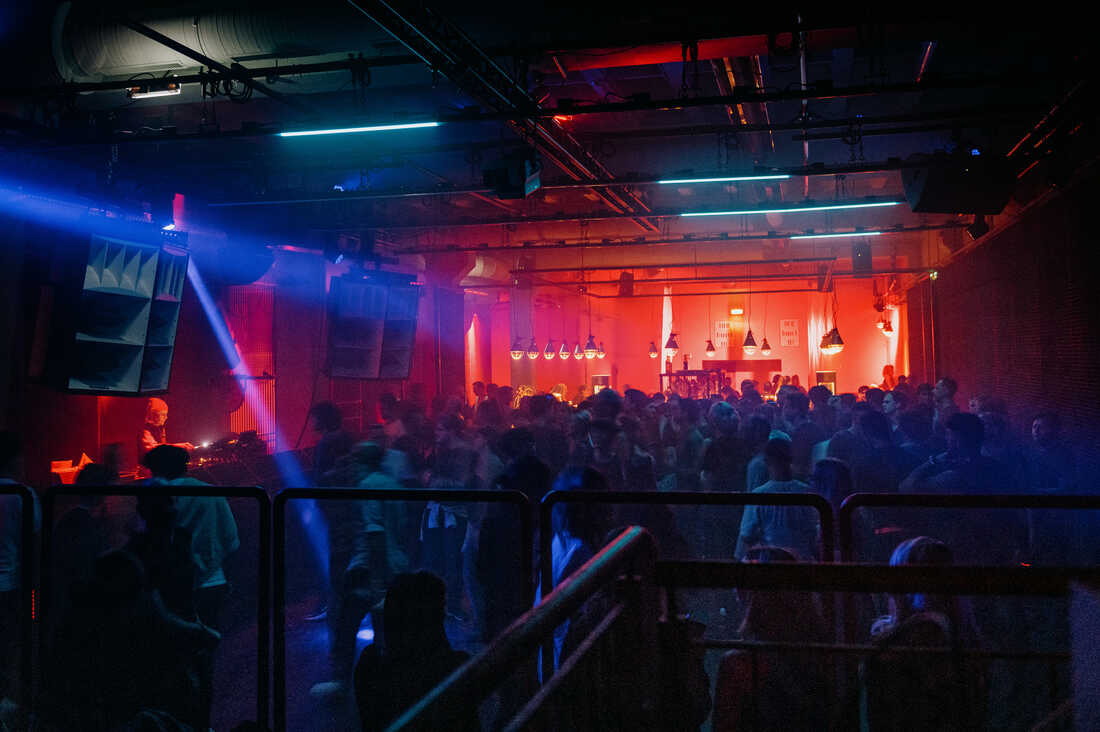The whiskey encounter that changed everything After World War II, divided Berlin imposed a strict curfew at night, much to the annoyance of the public, especially those seeking justice.
By 1949, few had enough.
"After four years, people want to go out and hang out again. People want to drink," he said. Dimitri Hegemann, founder and owner of Tresor, one of Berlin's oldest clubs.
Expand this image.
Dimitri Hegeman, 68, founder and owner of Tresor, at Kraftwerk, a former power station that hosts exhibitions and cultural events in addition to the club, on August 31. Jacobia Dahm for NPR Hide caption
Enable/Disable subtitles Jacobia Dahm for NPR Bars in West Berlin controlled by the Western Allies were closed at 9:00 p.m. In the Soviet-controlled East, closing time was 10 p.m.
East tired of finding last-minute dollars, West Berlin lifted the curfew an hour later. In response, the East refused another hour. The one-person strike has become like a curfew.
A hotelier named Heinz Zellermayer had had enough. He approached the brigadier general with a bottle of whiskey. General Frank Hawley, commander of the American sector in West Berlin.
According to a family history written by his sister Elisa Zellermeier, "They loved the night as much as we loved our expensive bread," Zellermeyer recalled.
The hotel owner insists that "violence only happens when the waiter says 'time off.'
The schedule is good for the economy, Zellermeier said, and unrestricted freedom is a manifestation of Western values.
Hawley was just as confident as his French counterpart.
However, the English rejected the theatre, fearing that the pub-goers were too noisy.
I recommend it. In June 1949, by two unanimous votes, the curfew in West Berlin was finally lifted.
Zellermeier was quick to share the news.
"I called all the bars in 10 minutes," said Hegemann. After the fall of the Berlin Wall, former East Berlin embraced the curfew nature of the Western world.
Expand this image.
September 3 Long lines outside Berlin's famous KitKat club. Kupenicker Street in Kreuzberg is home to two of the city's most popular clubs, KitKatKlub and Tresor, and on many weekends the ends of the two lanes meet. Jacobia Dahm for NPR Hide caption
Enable/Disable subtitles Jacobia Dahm for NPR A Berlin Club Committee report on the crucial meeting stated: "History does not record the amount of whiskey drunk", but "in the following decades the legend of the city of Berlin that never sleeps began". Taking shape.
Curfew-free Berlin attracts "techno tourists" and their money Zellermeier, who died in 2011, is now a beloved hero among the Berlin club's owners.
Hegeman, the owner of Tresor, organized events to celebrate the famous whiskey meeting. Some have called Zellermaier the "Obermeister" of Berlin's bar and club scene.
But others say Zellermeier doesn't get the credit he deserves for the 1949 negotiations.
"What this means for the city and the city's appeal is unknown today," said Berlin director Knut Hofmeister, who focuses on this chapter of German history.
Hofmeister administers the World Alcohol Consumption Waste Guide . In 1999, he organized a limousine to transport Zellermeier to the 50th anniversary of the curfew meeting in Berlin. Before entering, Hofmeister handed him a bottle of champagne. He then took Zellermeier to the Brandenburg Gate and photographed him with a half-century-old commemorative sign that has no closing date.
Expand this image.
Heinz Zellermeier in front of the Brandenburg Gate in 1999 to commemorate the 50th anniversary of the meeting that ended the Berlin curfew. Knut Hoffmeister Hide description
Enable/Disable subtitles Knut Hofmeister "People turned the night around," Hoffmeister said. "It was definitely a revolutionary act."
It is also a business that has created a powerful economic engine for the city.
Other cities have clubs that stay up until the morning, or underground scenes where anything goes. But Ben Jock, a professor of cultural studies at the University of Melbourne who has studied Berlin's art scene, says having a law that allows clubs to never close is what makes Berlin unique.
On September 4 at 18:15, left by Tresor Isabelle and Mauro (left), Karam entered a famous nightclub in Berlin (right). Jacobia Dahm for NPR Hide caption
Enable/Disable subtitles Jacobia Dahm for NPR "I know people have tried it in other cities, but it still takes away liquor licenses and other laws like that," he said. So it is unique in Berlin".
According to the Berlin Club Committee, so-called tech tourism attracts more than 3 million people to the city every year. Recent trade association research shows that visitors to the club spend €1.4 billion a year on accommodation, food and transport in the city, or around 8% of total tourism expenditure. every year.
The city's tourism officials announced that the city's curfew guidelines are meant to attract visitors.
"Party until the sun comes up and the sun goes down!" Unlike other German cities, Berlin has no official closing times, according to the city's VisitBerlin website.
People line up to enter the Treasury between 1.30am (left) and 6.45am (right) on September 4. Jacobia Dahm for NPR Hide caption
Enable/Disable subtitles Jacobia Dahm for NPR Clubs provide inspiration and motivation for those lucky enough to participate The treasure recently celebrated its 31st birthday. The club in a former power station is dark and cavernous. A combination of smoke from cigarettes and smoke machines. DJs play mostly hard techno music while strobe lights shine on the audience as they enjoy deafening and stunning drums.
At Tresor and other places like Berghain and KitKat Club, the audience puts on sunglasses and moves to the beat of the music. Sometimes that's all they wear.
Before people enter, guards put stickers on the phone's camera. What happens in the club, whether it's a dance marathon, sex or illegal drug use, should stay in the club. Confidentiality is critical.
Hegeman, owner of Tresor, says that clubs are not only for fun and escape from reality, but also for getting ideas.
When people take a break from dancing and enjoy other parts of the room, creative collaborations and business ideas are born, he says. This is believed to be due to the lack of curfew in the city.
"The best ideas come after 3:30 in the morning," he said. “People come together, we connect and say, 'Hey, we want to join this movement. Let's do something. Tomorrow we can open a gallery or a cafe. "
Expand this image.
Interior design for Kraftwerk, the building that houses the Tresor nightclub, as well as exhibitions and events, 31 August. The club is located in a former power station. Jacobia Dahm for NPR Hide caption
Enable/Disable subtitles Jacobia Dahm for NPR "So I think techno changed Berlin, changed Europe, changed the world," he said.
At Berghan, an endless line of hopefuls wait outside, Kostlin, a photographer, says tourists often read what it takes to get into the club online, think about it a lot, and often dress in black. to refuse.
"It's not about the clothes, but people think about it," Costlin said.
Most clubs in Berlin don't allow everyone to queue, but trying to figure out the secret door policy in Bergen is like trying to navigate a Greek laboratory. There may be several failed attempts before someone enters.
Some guards tell rejects " Heute leider nicht ", which roughly translates to "today is not your day".
On weekends, the line to get into Berghain can be five hours or more. There is also an Instagram page with 48,000 followers for regular weekly updates.
Once out the door, whoever works the door makes a snap judgment based on a "personal" assessment, as First Guardian GQ once said.
"You still always want conflict. That's the theme of every good club: diversity and conflict," Sven Marquardt told the magazine in a rare interview in 2015.
Kostlin said not having a curfew in the city allows people to try more on the weekends.
"They roll the dice every time," Koestlin said. "You have to be yourself and you have to be authentic. If you look like you're dressed just to walk in, they can feel it. But once you walk in, there's no time limit. There's absolute freedom. And that's what I want. "
Expand this image.
(left to right, top) Katarina, 26, Clara, 23, Christina, 26, and (left, bottom) Peter, 30, and Aurelia, 23, line up to enter Tresor in Berlin on September 4. Jacobia Dahm for NPR Hide caption
Enable/Disable subtitles Jacobia Dahm for NPR Famous Fon seaplanes - "Kings of the Atlantic" VIDEO


